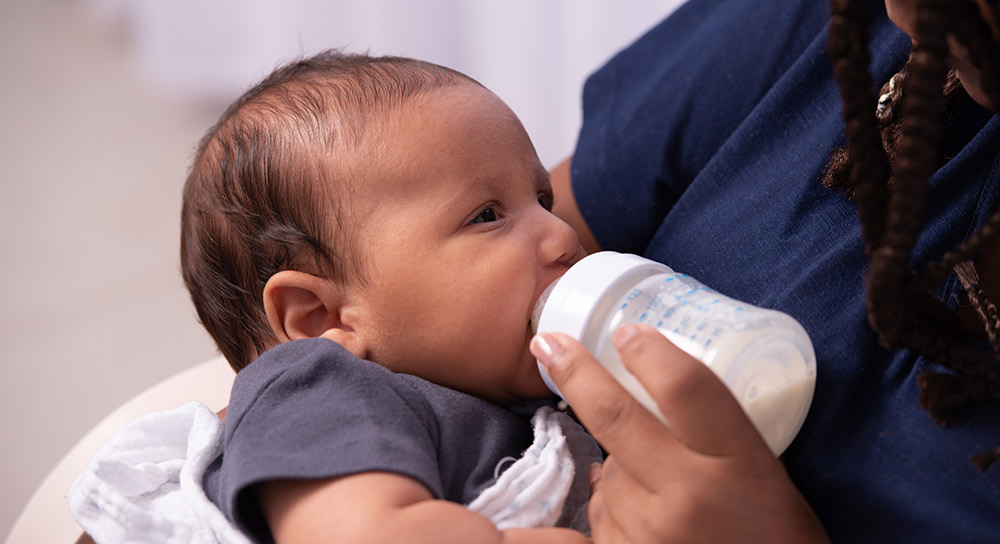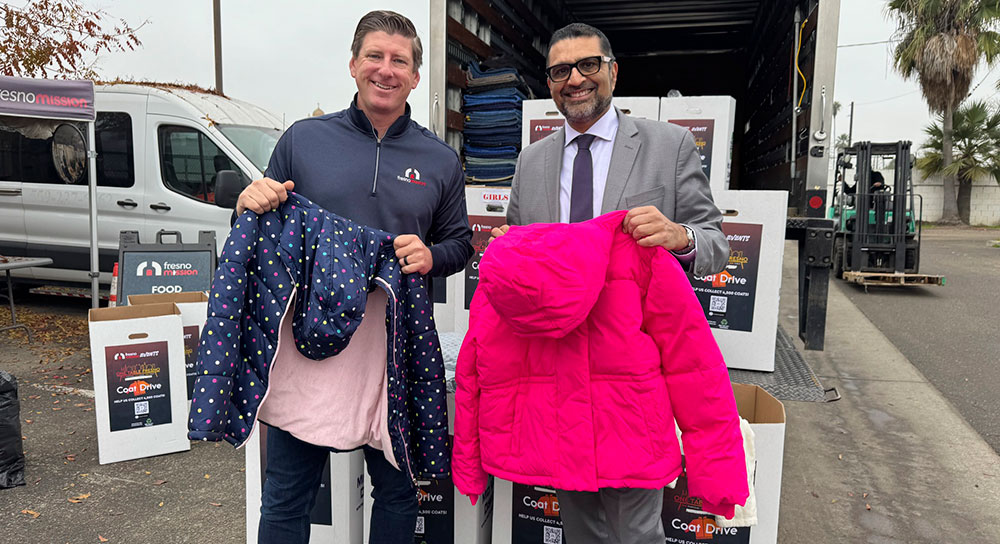It’s every parent’s nightmare: a hungry baby and a dwindling supply of infant formula on hand.
As the infant formula shortage continues, parents are searching local grocery stores and shopping online … but often coming away empty-handed or paying very high prices. It’s frustrating and time-consuming — not to mention nerve wracking.
So what’s a parent (or family friend) to do?
Start by checking other stores
If the shelves at your usual market are empty, it pays to check around. You may find one store with full shelves or at least some inventory because stores stock their shelves on different days and times.
If you’re eligible for WIC benefits, contact your local WIC office to see if they can provide you with ideas and help. You can also call 2-1-1 to connect with United Way’s community resource specialists to direct you to local food pantries.
What if it’s a different brand?
Chances are it will be. Don’t panic. Unless your baby needs a specialty formula, they’ll usually do fine with a different brand of the same type, such a cow’s milk-based, soy or elemental.
 Check the ingredients and nutritional labels to be sure it’s the same type. You can also check this list of comparable formulas developed by NASPGHAN, an organization of pediatric gastroenterologists.
Check the ingredients and nutritional labels to be sure it’s the same type. You can also check this list of comparable formulas developed by NASPGHAN, an organization of pediatric gastroenterologists.
Helping your baby adjust
Babies are just like us — they get used to certain smells and tastes. Chances are your baby will notice a different formula and may not take to it right away.
If you still have your regular formula, try mixing it with the new one and gradually increase the percentage of the new formula over time.
If your baby is crying and can’t be calmed, has gas pains, is vomiting, has diarrhea, unusual or irregular bowel movements, or is losing weight, they may not be tolerating the new formula. If this is the case, contact your pediatrician for additional resources and recommendations.
Buying overseas products
The Federal Drug Administration (FDA) has recently allowed formulas made outside the United States to be sold in U.S. stores. If you choose to purchase one of these, carefully read the preparation instructions. Different companies may have a different ratio of formula to water than those made in the U.S. You can use the FDA’s conversion chart to convert milliliters (ml) to fluid ounces (oz) and Celsius to Fahrenheit to make sure you are safely preparing your baby’s bottle.
Also, if you’re shopping online watch out for counterfeit products. While the FDA has approved the sale of certain formulas within the U.S., online marketplaces are difficult to regulate and fake products may pop up. Check that the product has been approved by the FDA before you buy.
Supplementing with breast milk
If you are using both formula and breast milk to feed your baby, consider increasing the percentage of breast milk.
To increase your milk supply, breastfeed more frequently, offer both breasts during each feeding and use a breast pump after and between feedings to fully empty each breast.
Breast milk can be kept in the refrigerator for up to 4 days or stored in the freezer for longer. Be sure to wash your hands and check that all breast pump parts are clean before pumping breast milk.
Consider using a milk bank
There are also accredited and certified milk banks such as Mother’s Milk Bank or UC Health Milk Bank. While most milk banks provide breast milk to hospitalized babies, they may have enough on hand for others.
The CDC does not recommend sharing breast milk or purchasing breast milk through non-accredited online forums. Unlike accredited milk banks, which have strict testing and hygiene requirements, getting milk from friends or through the internet does not guarantee protection for your baby from infectious disease or contamination.
Talk to your child’s doctor
Your pediatrician is the best resource for information specific to your child’s needs.
If your child uses hypoallergenic, therapeutic or specialty formula, it may be harder for you to find a safe substitute. Ask your pediatrician which formula substitutes would be best. Your doctor may be able to submit an urgent request for specialized formula to the formula manufacturer. These are approved on a case-by-case basis.
If you are not able to find your child’s formula or an alternative, there may be short-term options to consider:
If your child is six months or older, they may be able to drink pasteurized whole cow’s milk for a few days.
If your child is healthy, old enough and showing signs of readiness, you may also want to start introducing solid foods.
Always talk to your pediatrician if you do not have enough formula to feed your baby before considering any of these options.
Resources for parents
You can find additional information on formulas at the California Department of Public Health Infant Formula Information website or the U.S. Department of Health and Human Services Information for Families During the Formula Shortage website.






